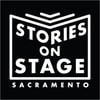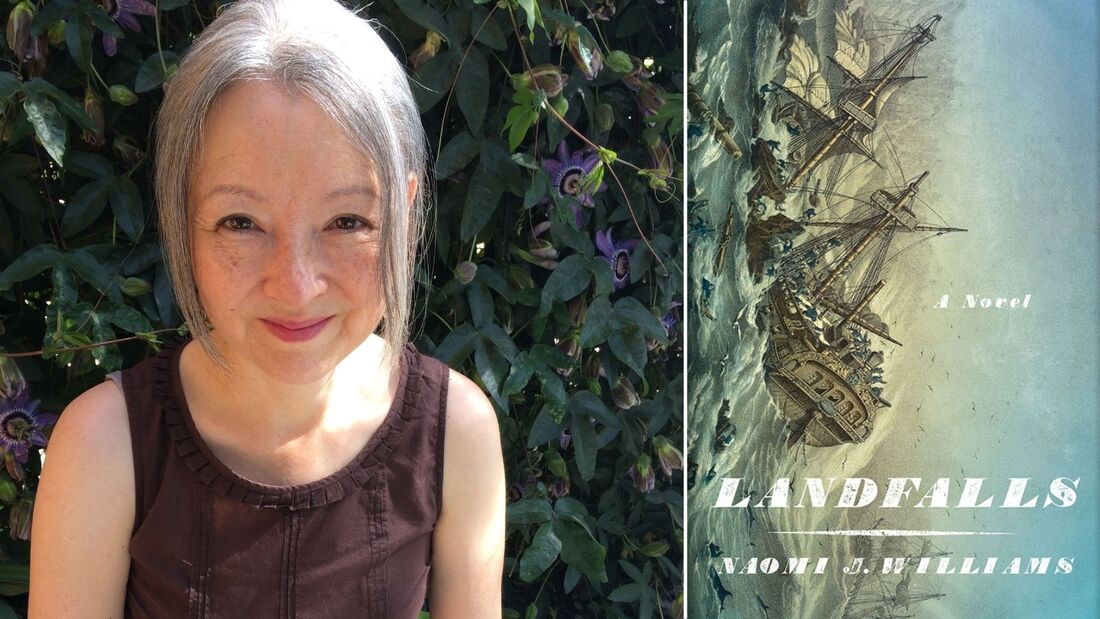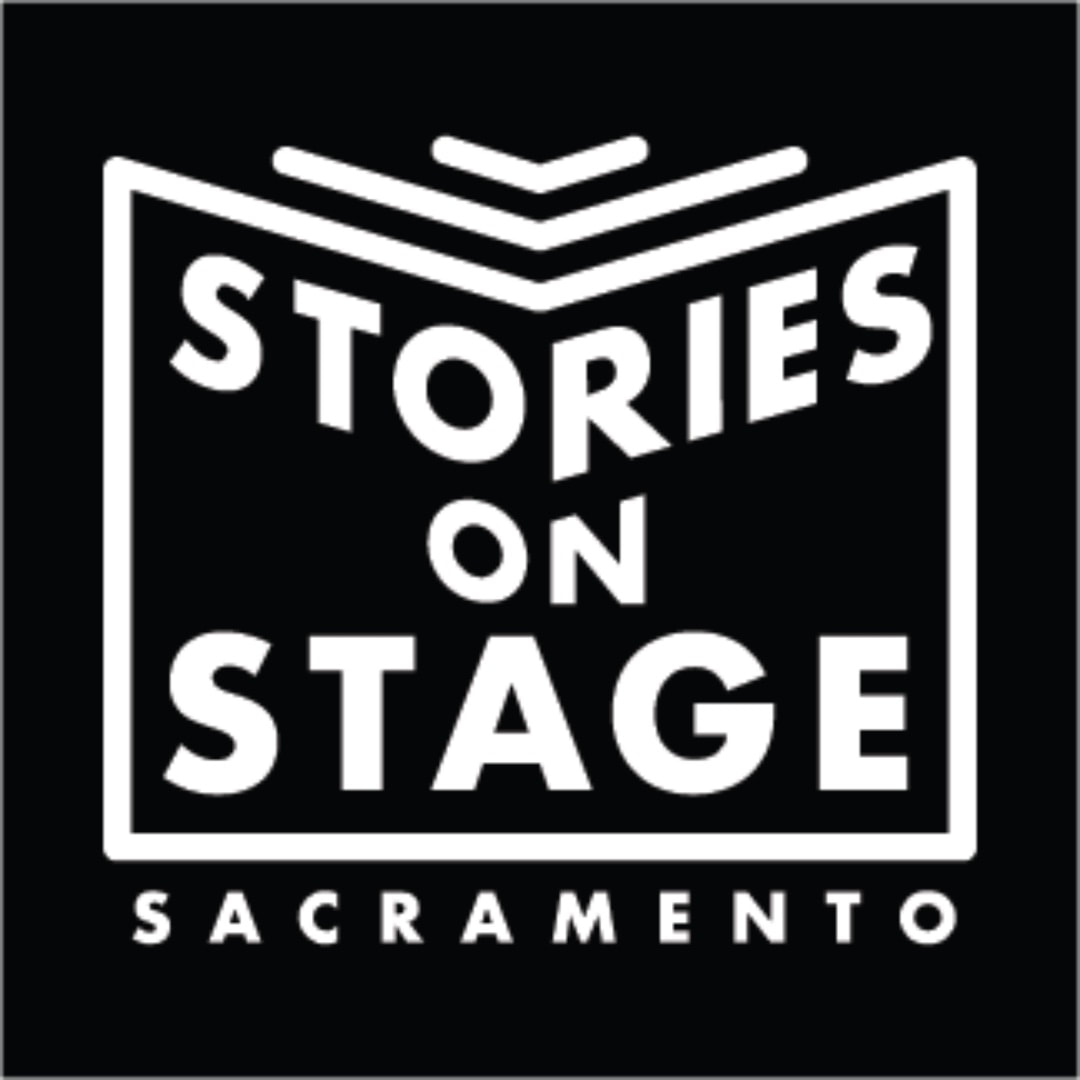|
By Sue Staats
Naomi Williams’ first novel, Landfalls, was long-listed for the Center for Fiction First Novel Prize and the National Book Critics Circle’s John Leonard Award. Her short fiction has appeared in journals such as Zoetrope: All-Story, A Public Space, One Story, The Southern Review, and The Gettysburg Review. She’s won a Pushcart Prize, earned an Honorable Mention in Best American Short Stories, been awarded grants and residencies by the Sustainable Arts Foundation, Hedgebrook, Djerassi, and Willapa Bay AiR. Naomi was born in Japan and spoke no English until she was six years old. Educated at Princeton, Stanford, and UC Davis, she lives in Sacramento. For three years, she co-directed our sister series, Stories on Stage Davis. The story we’ve selected to be read at Stories on Stage Sacramento is “After the Operation,” a part of Naomi’s unpublished new collection of short tales based on Japanese ghost stories, Strange Trouble. It begins like many woman-recovering-from-breast-cancer stories, a woman coming out from surgical anesthesia, and I was lulled into thinking, at first, that the story would focus on the woman’s recovery, or loss, or something more ordinary. It does not. This is a Naomi Williams story, full of the unexpected, the mysterious, and it soon makes a hairpin turn into the supernatural, becoming more and more haunted. I’ve read a lot of Naomi’s work—first her beautiful novel Landfalls, and several of the stories in her new collection—so I thought this was the perfect opportunity to ask here where this love of the supernatural, which infuses all of her work, comes from. And a few more questions, besides. Sue: Whew, Naomi, this story really caught me by surprise. It’s got a weirdness, and a ghostly quality, that pulled me in, puzzled me, challenged me, did all the good things stories should do. I’m curious about where this story, and the others in the collection, came from, and how it developed. Naomi: They were all directly or indirectly inspired by Japanese ghost stories, and I was specifically interested in rethinking the work of Lafcadio Hearn, this amazing Greek-Irish-eventually-Japanese writer who spent the last fourteen or fifteen years of his very short life in Japan, became a Japanese citizen, married a Japanese woman, and who wrote English retellings of the Japanese stories, especially the creepy ones that involved something supernatural or monsters or ghosts. They were very popular in the US at the end of the 19th and early 20th century. And, interestingly, these stories, translated back into Japanese, were often the most popular versions in Japan. I grew up having my mother read to me some of these stories, so there are like multiple layers of cultural crossover at that point, already. When I was a teenager, I saw a movie on television, called Kwaidan, which in Japanese means “strange tale.” The movie, made in 1964, was a film adaptation of four of Lafcadio Hearn’s stories. I remembered that the stories were scary and the movie was absolutely terrifying. Then, when I was a graduate student in the MFA program at UC Davis, I TA’d for a professor in their Japanese language program, including a summer session where he taught a course in Japanese film. And one of the movies was Kwaidan. I had forgotten the name of the movie, and as soon as it started I said, Oh, damn, this is that movie! I was transfixed, and this time I wasn’t scared, I was just thrilled. And I thought, you know what would be cool is to reimagine those stories, to retell Lafcadio Hearn’s retelling so that there are multiple layers of retelling involved. But at the time I was in the middle of writing my thesis, which turned into my first book, so I kind of shelved the idea. After Landfalls came out I thought, you know, I want to write a collection of short stories, I want to go back to that first project. So, I did. This particular story, “After the Operation,” is indirectly inspired by what I had found was the scariest of the four stories in the film, where a low ranking samurai pours himself a cup of water and when he looks into the cup, he sees not his own reflection but the reflection of another person, and it freaks him out, so he throws the cup down. He tries it again and the same face looks up at him, a kind of angry and leering face and eventually he just drinks it down, and then he gets haunted by the spirit of whatever was in that water. So when I went to think about how to adapt that particular idea, I remembered my own breast cancer surgery in 2018—it wasn’t invasive, I was very lucky—but when I came out of the anesthesia I actually had a much milder version of the experience I write about in the story, which is when I looked in the mirror I felt like I didn’t recognize the person there. I felt that way for about 24 hours, and this passed. But I remembered it. Sue: That’s fascinating. It would never have occurred to me that the roots of this story, and the others in the collection, come partly from a Japanese horror movie. Are all the stories a bit ghostly, tinged with horror, the way this one is? Naomi: They are all ghostly and many of them are tinged with horror. Sue: What draws you to the supernatural, to horror? Is it the childhood stories or something more? Naomi: Actually, I’m very much a card-carrying scaredy cat. I do not generally like horror movies and don’t seek them out and haven’t been a fan of horror fiction, so much, although I love Kafka! I’m much more interested in what is creepy more than what is gory. This collection doesn’t have much gore, although there’s a lot of unsettling body stuff. And I also think that part of this interest comes from my extremely weird Calvinistic upbringing, all steeped in hell and damnation and the Old Testament. That is some horrifying stuff in the Bible, especially but not exclusively in the Old Testament. I was very, very well versed in that stuff. This is a great question, because I haven’t really thought about this before, but that’s part of it. And I’ve always been very interested in disaster, that’s what Landfalls is about, a disaster. I’ve always been drawn to it. So this kind of fiction—ghost stories—is kind of about private catastrophes, not big public ones. Sue: What you’re saying makes me think of the last chapter of Landfalls, beautiful and lyric, narrated by doomed men whose ship is going down in a storm. Like they’re ghosts already. So this isn’t new in your work. Naomi: That chapter is a little bit like a ghost story, told from the first person plural view of all the men on that expedition, pulled a little bit out of time, as if they know what’s going to follow. And actually that’s not the only chapter that’s like that--one of the last chapters, about the trader who actually found the La Perouse wreck, was originally going to be a straight up ghost story about how he was haunted by the spirit of La Perouse. The trader, a real person named Peter Dillon, was violent, erratic, a mess. I thought, what explains this behavior? But when I wrote it like a ghost story, that he was haunted by the men on the ship he found, it had a kind of “Ghost and Mrs. Muir” quality, so I abandoned it. Sue: You didn’t start out to be a writer. What brought you to the UC Davis graduate MA program in 2006? (Full disclosure: I first met Naomi in a fiction seminar there, taught by the redoubtable Lynn Freed.) Have you always written or was it something you were drawn to later? Naomi: I’ve always been writing, ever since I was very young, but for a long time I convinced myself that I did not have what it took to be an actual “writer” writer. I very seriously tried to draft a novel in the late 80s and early 90s that was an autobiographical novel about a young Japanese American woman who goes back to Japan, and got such terrible feedback on this from a writing teacher at a community writing class in San Francisco that I not only abandoned that novel but abandoned all pretense of writing for many, many years. I worked in publishing (Sierra Magazine, WebMD, Time Inc.,) had kids, developed this repetitive stress injury, moved to Davis. Then I was like, You know what? The one thing I care about, even though my right arm hardly works at all, is that I like to write. So I started writing short stories, wrote some fairly autobiographical ones, and lost that old novel completely. I lost touch with the person of that period. What I learned is that you can’t wait to do the project you currently have in your head. It just won’t wait around for you. And then I had the idea for Landfalls, which I didn’t start working on until we moved to Davis and it turned out I was a bike ride away from this world class research library, so I could indulge this interest in this obscure French voyage, which I did, for like ten years. When Landfalls came out I was asked by, I think, The Irish Times, to write a thing about writing. I think what they were interested in was the experience of being an older debut novelist and I was like I’m not writing some puff piece about how I’m so happy to be this older writer because I’m wiser and have more equanimity or some bullshit like that, because it’s just not true. Sue: So, in your previous life you were a professional editor, and in your blog you mention that you think you’re a better editor than a writer. Why do you think this is true? And you also teach. I know that not all writers love teaching, but most do it for the income. How about you? Naomi: I actually really do love it. Right now I am in the very lucky position of not having to do that work, but I do it because I do love it and I think I’m actually pretty good at it. You know it’s helpful if you’re a writer to have something in the wings that you know that you are good at that’s writing related. For me, anyway. This is not true for everybody, and I know writers who find the need to make money through teaching to be stultifying and soul-diminishing, but for me, I find it quite energizing. I love working with writers. And the whole thing about editor vs writer—it’s not that I feel more like an editor, I think I am a better editor than I am a writer, and this is one of the things I bring to my teaching. I say to my students, I think I’m a good reader, not just for what I would want in the stories but for trying to suss out what I think you want in the story, and trying to help you past the—well, I find that most writers just have too many words. It’s really fun for me to look at a manuscript and to get a glimpse of what I think the writer is trying to accomplish, and then just suggest ways in which they might better accomplish that. Everyone has writing tics, and it just takes an outsider to see. If I can identify those, and say, for example, Did you know you have this particular sentence structure for which you have an inordinate fondness, and you need to vary it up—people say, Oh my God, I never noticed that, but you’re absolutely right. Or they have a favorite word that they use over and over. Sue: Tell me about your current teaching gig. Naomi: For the last three years I’ve been teaching at the Low Residency MFA at Ashland University in Ashland, Ohio—not Ashland, Oregon—and the director is Christian Kiefer (Sacramento area novelist) and I just want to put in a plug for the program. It’s kind of an unsung little gem in the low residency MFA space, especially for fiction. The faculty is strong, students are really good and we convene just once a year in the summer, for two weeks. The last two years have been virtual but we’re going to try and do it in person this summer, fingers crossed. But there’s a really fascinating, diverse faculty. I can’t say enough about how much I love teaching there, and what I see happening with students. Sue: I understand there’s another benefit for you? Something I never would have expected? Naomi: Well, yes. Several of the other faculty members, and some current and former students, and I have been playing Dungeons and Dragons online for a little over a year now, and Sue, I had never played D&D before. I’m very nerdy and all but I was never part of that crowd in high school or in college. But sometime in 2020 Christian texted me and said do you want to join me and some other faculty members in a D&D game? And I actually turned to my husband Dan and said, Look at this text I got. Should I say yes? I don’t know anything about D&D. And he said, Of course you should say yes, playing D&D with writers, that sounds so cool. And I said, Okay. And we’re on our second campaign now and it is very fun. The thing is, that even though I’m a fiction writer, this calls upon something slightly different. You have to act, to some extent, and you really have to get out of your box and actually act as, behave as, that character during a session, and it also occupies the fantasy space. My creepy stories might butt up against that space, but I’ve never been like a high fantasy, swords and magic kind of writer, and this definitely is in that realm. It’s forced me to think on my feet, because, there’s this ogre! And also, week after week I was killing things and mayhem and getting all messed up by monsters and drinking healing potions. Sue: We could all use some healing potions! I’m jealous! I have to ask. When your boys heard this, did they think they had the coolest mom ever? Naomi: You know, they thought it was hilarious.. They’re used to me doing somewhat wacky things, but this was a little unexpected. Anyway, it’s been a great way to blow off steam and stay in touch with people on a weekly basis throughout the pandemic. Sue: Thank you, Naomi – writer, teacher, editor, and now, for the all the world to know, D&D aficionado!
0 Comments
Leave a Reply. |
|
Who We AreLiterature. Live!
Stories on Stage Sacramento is an award-winning, nonprofit literary performance series featuring stories by local, national and international authors performed aloud by professional actors. Designated as Best of the City 2019 by Sactown Magazine and Best Virtual Music or Entertainment Experience of 2021 by Sacramento Magazine. |
|


 RSS Feed
RSS Feed
